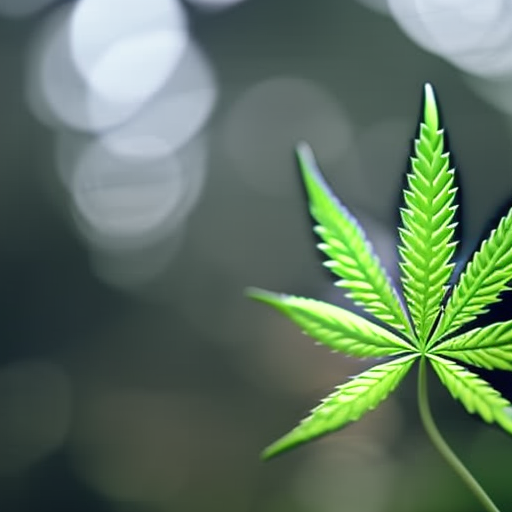
In the realm of maternal-fetal medicine, a significant area of concern has been the potential effects of prenatal cannabis exposure on child development. Two recent studies published in the Journal of the American Medical Association Network Open offer new insights into this pressing issue, specifically addressing fears surrounding autism spectrum disorder (ASD) and developmental delays in children exposed to marijuana in utero. Funded by the National Institute on Drug Abuse (NIDA), these investigations suggest that maternal cannabis use during early gestation may not be as detrimental as previously feared, although they also underline the necessity for cautious interpretation of these findings.
The first study focused on the association between maternal cannabis use and the risk of ASD, incorporating a substantial dataset that included 178,948 pregnancies from 146,296 unique individuals between 2011 and 2019. The research design employed robust statistical methods to adjust for potential confounding variables, such as sociodemographic factors, maternal co-morbidities, and the use of other substances. The authors concluded, “In this study, maternal prenatal cannabis use was not associated with childhood ASD after adjusting for potential cofounders.” This finding is particularly salient amidst ongoing debates regarding the neurodevelopmental risks posed by prenatal marijuana exposure.
A second study explored early childhood development, assessing a cohort of 119,976 pregnancies from 106,240 individuals between early 2015 and late 2019. It specifically examined developmental milestones, including speech and language disorders, global developmental delays, and motor delays. The authors reported a significant finding: “Maternal cannabis use during early pregnancy was not associated with speech and language disorders, global delay, or motor delay.” This suggests that, at least within the context of the cohorts studied, prenatal cannabis exposure does not correlate with immediate developmental deficits.
Despite the reassuring findings, both papers emphasize that these conclusions do not equate to an endorsement of cannabis use during pregnancy. The authors caution that frequent or heavy use of marijuana may still pose risks that were not captured in their analyses. They noted, “While the autism findings suggested that cannabis use during pregnancy isn’t associated with autism in children overall, there may be an association with higher frequency use, highlighting the need for more research.” This call for further inquiry is particularly critical, as the relationship between substance use and developmental outcomes can be multifaceted and vary significantly based on dosage and frequency.
Moreover, an intriguing aspect of the childhood development study revealed a “modest inverse association between speech and language disorders when defining cannabis use based only on urine toxicology results.” This suggests that self-reported data may not be as reliable as biochemical validation, complicating our understanding of the true impact of prenatal cannabis use.
As the scientific community grapples with these findings, the sociopolitical landscape surrounding marijuana use, particularly in pregnancy, remains contentious. A troubling trend has emerged, with law enforcement increasingly targeting pregnant individuals for drug-related offenses. A report from the organization Pregnancy Justice revealed a surge in prosecutions related to substance use during pregnancy, particularly following the 2022 Supreme Court ruling that overturned *Roe v. Wade*. Alarmingly, nearly 97% of these cases involved allegations of substance use, with cannabis frequently cited.
This societal scrutiny is compounded by the fact that the majority of defendants in pregnancy-related cases are often low-income individuals. This raises ethical questions regarding access to healthcare and the disproportionate impact of legal penalties on vulnerable populations. The implications of criminalizing maternal substance use extend beyond individual cases, potentially deterring pregnant persons from seeking necessary prenatal care and support.
#### Conclusion
In summary, the recent studies published in JAMA Network Open contribute valuable data to the ongoing discourse surrounding the neurodevelopmental implications of prenatal cannabis exposure. While the findings indicate no significant association between maternal cannabis use and the development of autism or early childhood delays, they also underscore the complexity of this issue and the need for caution. As the landscape of cannabis use evolves, both scientifically and legally, it is imperative for healthcare providers to communicate the current evidence to pregnant individuals while advocating for supportive, rather than punitive, responses to substance use during pregnancy. Future research will be essential to further delineate the nuanced relationship between maternal cannabis consumption and child development outcomes, ensuring that informed guidelines can be established to safeguard maternal and child health.

